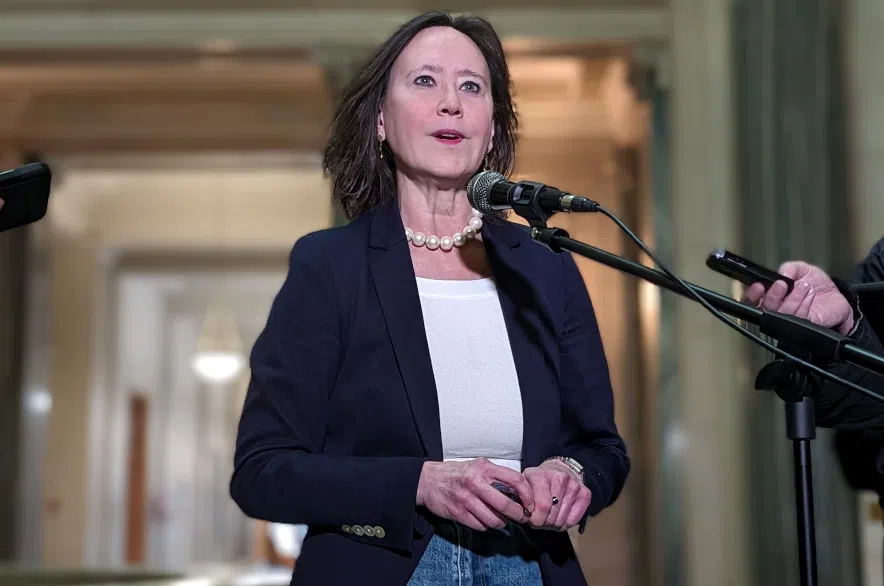The Saskatchewan government is looking to stop arguments against its pronoun law before they even start – it’s appealing a recent decision that would allow a case against the legislation to go ahead.
Last fall, in an emergency sitting, the provincial government introduced, debated, and passed a set of changes to the Education Act, which included a law that requires parental consent for anyone under 16 to change their name and pronoun in school.
Outrage ensued, including a court case by UR Pride with Egale Canada providing legal counsel.
Recently, a judge issued a decision allowing the case against the now-law to go ahead, despite the provincial government invoking the notwithstanding clause in the law, allowing it to violate parts of the Charter of Rights and Freedoms.
Now, the provincial government is appealing that ruling.
Justice Minister Bronwyn Eyre said these are important legal and constitutional issues that need to be considered at the Court of Appeal.
“It is actually of quite significant constitutional importance that potentially going forward … where a provincial legislature invokes the notwithstanding clause, that really, in effect, finishes the issue,” said Eyre.
Any declaration from the court on this would likely just call the notwithstanding clause into play, as opposed to scrapping the law.
Eyre said there are national issues in this case, like where a possible declaration on the case would leave the notwithstanding clause and the power of legislatures in the future.
Eyre said she also sent out letters on Wednesday to the attorneys general of other provinces to see if they want to intervene in the case.
The case against the law also cites Section 12 of the Charter, which talks about cruel and unusual treatment, and which the invocation of the notwithstanding clause in the pronoun law didn’t cite.
But Eyre doesn’t believe that will work.
“The legal threshold for cruel and unusual punishment is very, very high. It’s behaviour that is abominable, intolerable (and) abhorrent to the majority of, in this case, Canadians. And with the majority of Canadians supporting parental rights, we don’t feel that that will be a successfully argued case,” said Eyre.
The case has largely been argued by a private law firm instead of the government’s lawyers, which Eyre said has happened before.
NDP Justice Critic Nicole Sarauer said it’s very early for this kind of reaction from government.
“This is such a preliminary application … To say that the judge did anything that would infringe on the ability of a legislature to enact a notwithstanding clause is, quite frankly, wrong,” Sarauer said.
In fact, Sarauer said the decision the government is appealing was very clear that the notwithstanding clause was validly enacted.
“I think what they’re afraid of, frankly, is they’re scared of what a judge will say in the future that this is a Charter violation on the rights of vulnerable children, likely, that will mean that the notwithstanding clause comes into effect,” she said.
“He’s not saying that the notwithstanding clause isn’t legally valid, and I think that’s what the minister of justice is trying to imply, and that’s not correct.”
Eyre said leave to appeal was sought just last week, so while she couldn’t give any kind of timeline on a decision, she said both sides have an interest in this being resolved.











